David vs. Goliath: How Dental Startups Can Triumph Over Corporate Dentistry
Are you an associate dentist contemplating the path to practice


Many associate dentists dream of opening their own practice. A practice built based on their vision in the perfect location with team members they choose and an office design that allows for the patient experience they want to give.
Maybe you are one of them?
If you have ever thought about it, don’t let the risks scare you away. Instead, learn the RIGHT way to prepare for and open a successful dental practice.
In this article, you will learn 7 specific steps for preparation in dental startup ownership.
When you study these 7 Preparation Steps, you will learn how to lower risks and increase profits with a startup, even while you are in your associateship.
When researching how to open a dental practice startup, the first thing you want to do is look for proven strategies. You want to make sure the source truly offers expert advice. Don’t put your future career in the hands of the so-called “experts” who have opened ONE dental practice. Or even worse—they haven’t opened even one.
At Ideal Practices, we have been helping dentists open startup offices for over a decade. We have opened hundreds of dental offices all across the country. And not one of our clients has failed to be successful.
Planning Resources
Below, you will find a copy of the 13 Stages Timeline and half a dozen additional resources to help you prepare.
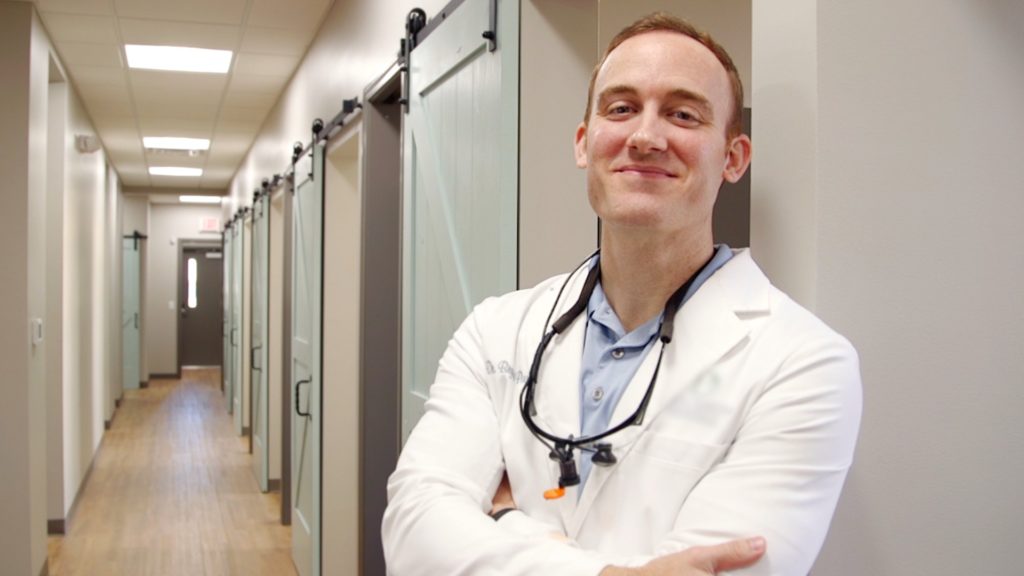
Each of these 7 steps will prepare you for a confident path toward successful dental practice ownership.
Are you an associate dentist contemplating the path to practice
Opening a new dental practice is an exciting journey, but
Deciding between launching a new dental practice and acquiring an
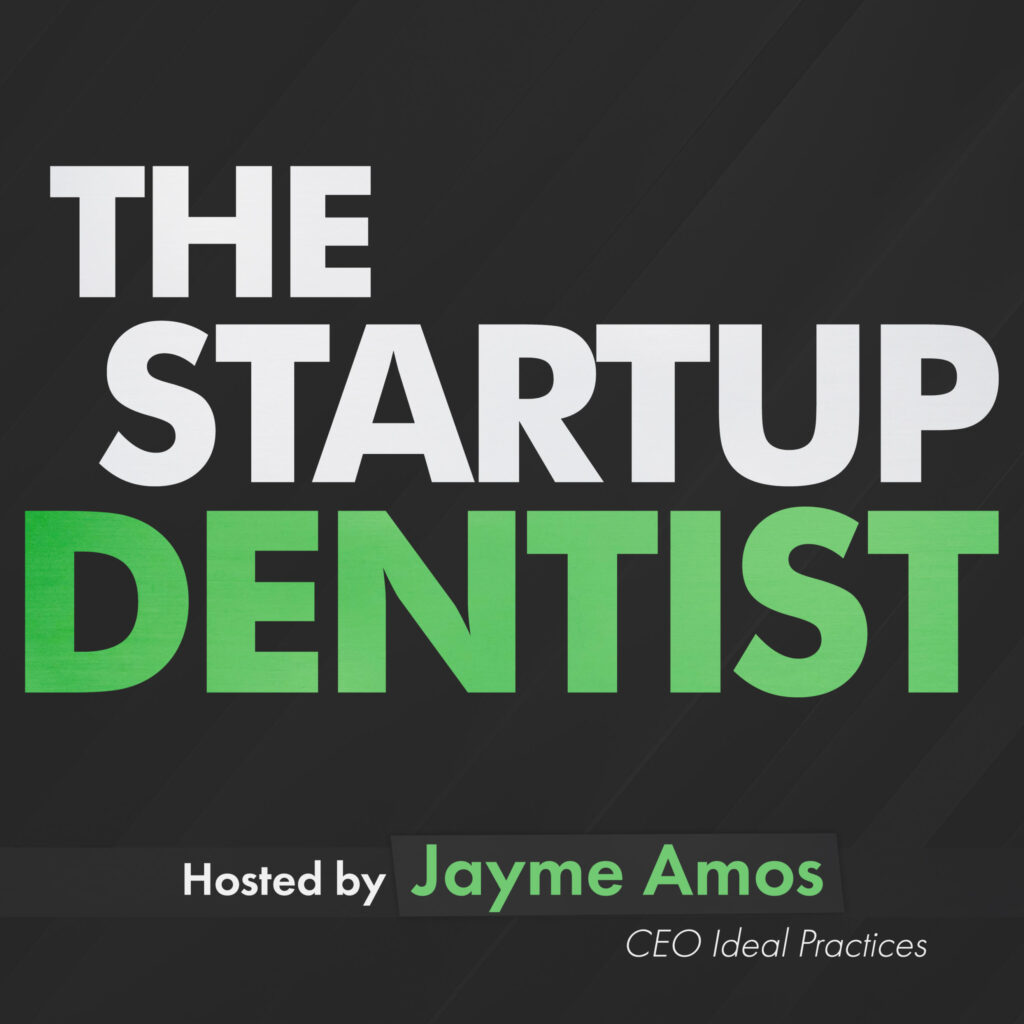
One of the most important steps in planning your startup involves your timeline.
Often, doctors ask, “When should I start?” and “How long will it take?”
Use the 13-Stages timeline shown below to learn the right planning timeframes.
THE STARTUP PRACTICE OWNERSHIP TIMELINE
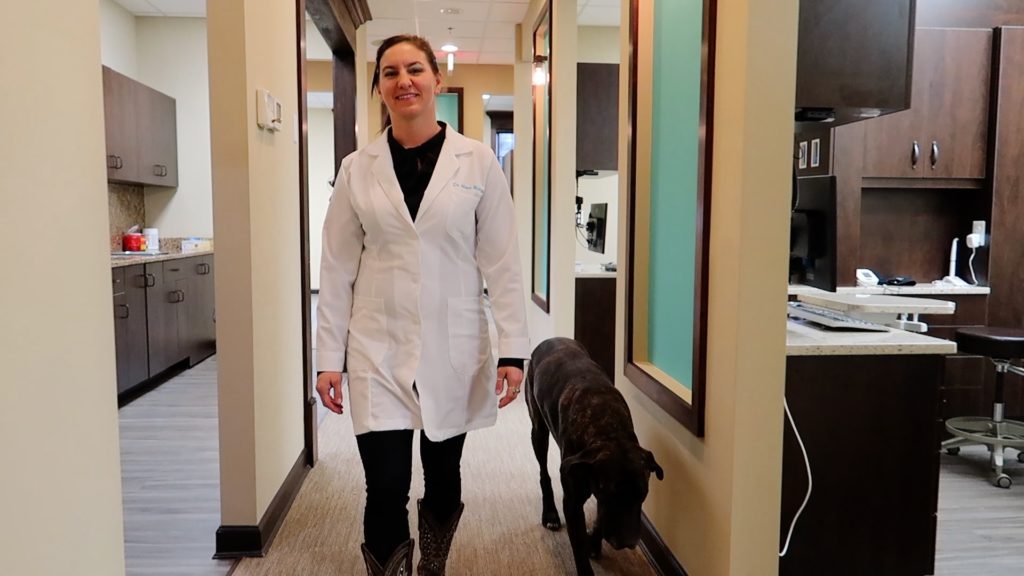
On average, the startup planning process will take you 12-18 months. Ignore the salespeople and so-called “experts” who try to convince you it can be done quicker. Sure, you could rush through some of the stages, but why would you?
We’re talking about your future! You don’t want to rush it—you want to get it RIGHT.
Shortening this process puts you in a risky position, not leaving enough time to open properly.
Corporate dentistry enjoys stamping out more Mc-Dentist offices in record time. Maybe that works for them.
But if you want to open a dental office that matches your standards, makes a positive impact in your community, and can be quickly profitable, it is worth the investment of time.
The time you invest in proper planning will get you proper results. Don’t be like those doctors who fall for the sales-pitch of opening fast, only to find years of mistakes to fix.
Invest a couple of extra months in protecting your next couple of decades.
Let’s get this right!
We’ll start with the process of customization in dental startup ownership.
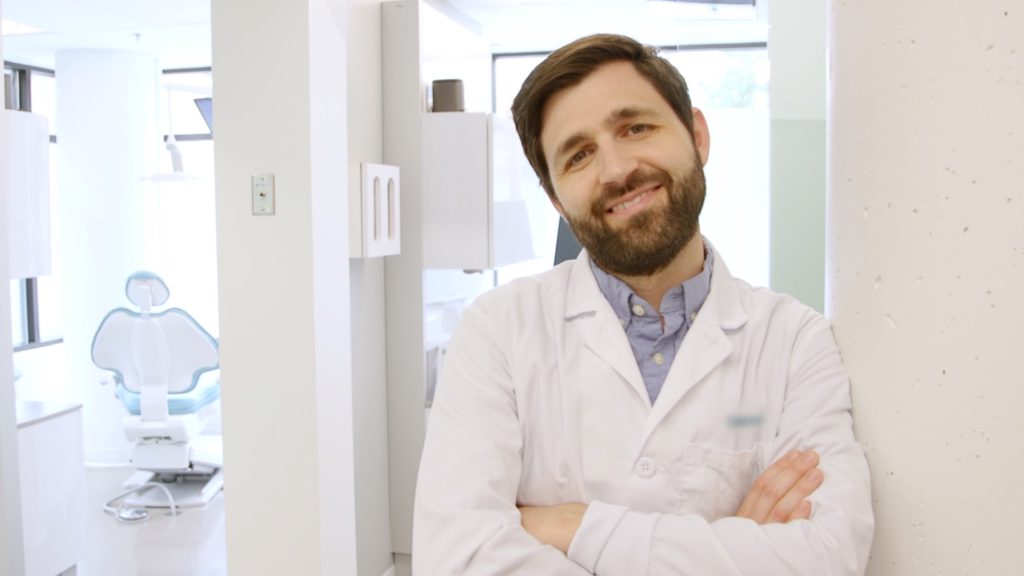
To properly open your dental practice startup, you must: do each of the 13 Stages in the right order, complete them thoroughly, and keep them customized for you.
Customize these 11 Core Concerns for your dental practice business plan:
Use the 11 Core Concerns to piece together your vision for your practice and future. When you understand your vision, you can REVERSE ENGINEER a business plan. Following this business plan will allow you to open a dental office that fulfills your expectations—even in the first month.
You can have a predictable plan that earns you a values-based reputation, a profitable practice, and allows complete control in dental practice ownership.
Like Dr. Lauren.
She opened her doors with 209 patients on her first day. She said she wanted a boutique practice that matched her values while growing fast.
Watch Dr. Lauren’s story in this video. Hear her say, “The phone literally won’t stop ringing.”
After you have your customized dental practice business plan, it’s time to reverse engineer your implementation strategy.
The best way to keep control of your startup is by reverse engineering the entire process.
Alternatively, doctors who try to learn during the process make irreversible mistakes.
They become reactive. They overspend without enough planning time. Their choices become defensive.
They lose control.
Why? Those doctors open practices that miss the best levels of startup practice ownership.
Perhaps you know colleagues like this.
Those doctors struggle with a weak, underdeveloped dental practice that takes years to reach its potential.
Even worse? When the doctors don’t realize their mistakes until after opening their dental office.
Avoid the struggles. Cut out the risks. Your startup shouldn’t be “trial and error.”
Stay in control. You can predictably Reverse Engineer the entire dental startup process—and keep your control—when you perform the 13 Stages process properly and in the correct order.
By customizing with this planning process, you will be following the same proven plan that we use to create million-dollar startups for proud practice owners across the country.
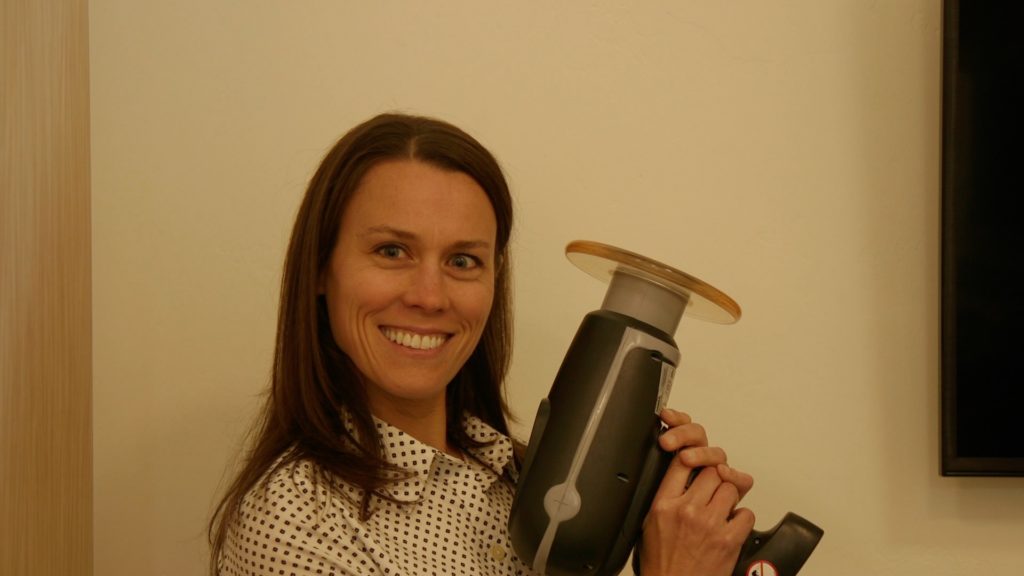
Sadly, too many dentists make the mistake of following advice based on the wrong model.
For startups, this worst model is “Cookie-Cutter Advice.”
You will see this in courses lead by people with ties to corporate dentistry. Look closely at their corporate ties. You may be shocked by the financial interests you uncover. Be careful.
You can spot Cookie Cutter advice in courses that teach you to:
Private dental practice owners regret making those choices. Watch carefully for those models.
“Follow a plan that represents your personal, customized standards. Not a Cookie-Cutter model.”
– Jayme Amos, CEO Ideal Practices
Dr. Gerry got predictable results by specifically ignoring the so-called “expert” advice. As a result, he reached 300 new patients in his first 6 weeks, even though he had no previous business experience.
How?
CASE STUDY
Dr. Gerry’s practice is a great case study showing how dozens of customized planning pieces—based on his vision—led to success in his dental practice startup.
Here is a specific example: Dr. Gerry opened his practice next to a low-income bus stop. On purpose.
Why? Because Dr. Gerry’s vision included his desire to serve a lower-income population. The bus stop in front of his practice was a perfectly customized part of his plan, intentionally attracting those patients.
Even in the first few weeks, Dr. Gerry was proud and profitable. Within the first year, he grew to a million-dollar practice.
If he had followed the typical cookie-cutter advice, he would have missed out on the things that he enjoys most!
Or, if he were like many dentists, he may have posted his bus stop question on social media. Can you imagine what the advice from a bunch of random people on social media would have been? What a tragedy it would be if they had discouraged him from including a key element in a dental practice he is proud to own.
Be like Dr. Gerry. He was proud of his dental practice because it matched his values for the community he desired to serve. He loved serving that population and enjoyed the pace, customized for his dental office startup.
Makes sense, right?
This is about your fulfillment and your control in private practice ownership. Not group-think. Not cookie-cutter advice.
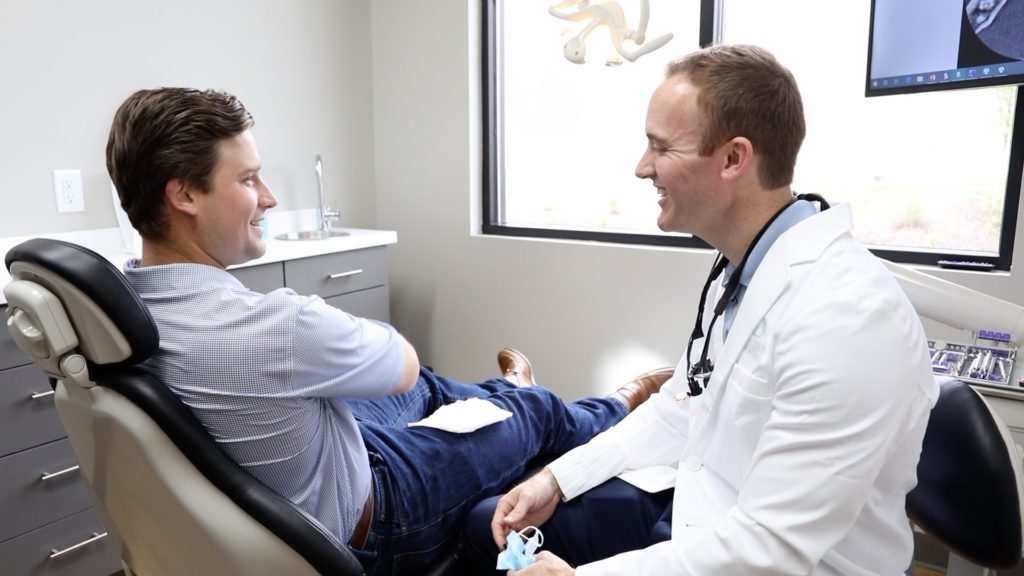
It depends. Would Dr. Gerry’s practice strategy be right for you?
Unless you are looking to own a McDentist, cookie-cutter is not the way to build your plan. Every startup practice owner deserves a personalized, customized dental business plan.
Hyper-specific decisions need to be made to create your dental practice model and bring you the success you deserve. Having a bus stop is perfect for Dr. Gerry. But it’s not perfect for everyone.
Let’s create a customized plan for your ideal patient profile, your ideal town, your model, your vision, your income, and your family’s future.
But – remember this – you get just one chance to make these choices. Most decisions for your startup can not be undone without a lot of time and money involved.
Which brings us to the most important question in your startup ownership planning…
“What startup plan is right for me?”
Avoid asking the alternative question: “Which one model worked for one doctor in one town one time?”
Read those two questions again and see which one is better for your future.
Which will make you happier in dental office ownership?
This is why your planning stage for dental startup ownership must be customized.
Sadly, the mistake that many associate dentists make is they allow themselves to be the guinea pig for the theories of someone without any real experience.
“What worked for ONE doctor ONE time in a different town for a different practice model is not customized advice for your startup.”
If you want the best parts of owning a dental office, customize.
Pre-Plan.
Reverse engineer.
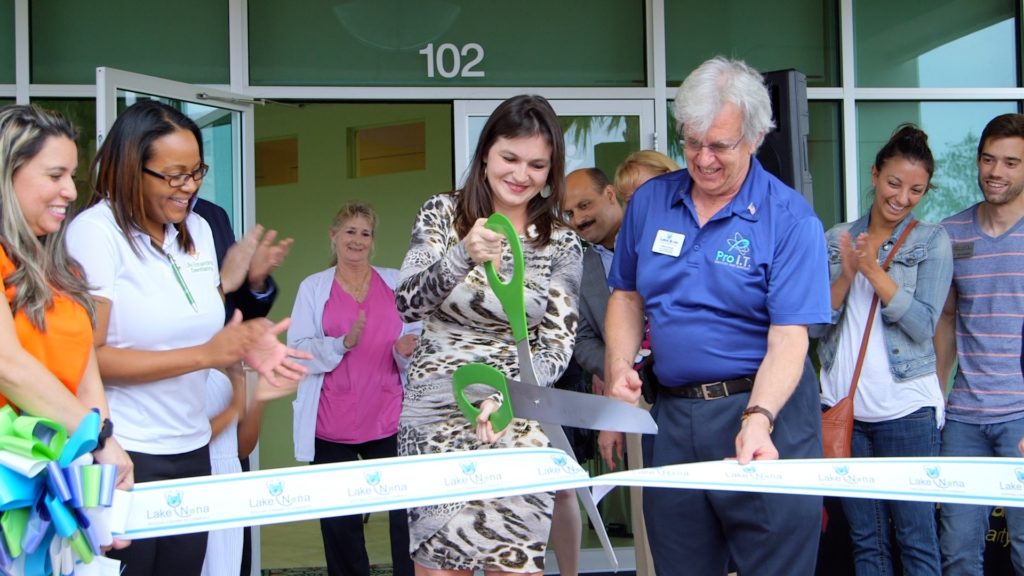
Jayme Amos, CEO of Ideal Practices, teaches a free 13-Stages video training. In this training video, you will see how associate doctors avoid cookie-cutter mistakes and create a customized plan.
Imagine you get a call from a childhood friend who has big news to tell you.
He approved the treatment plan for his full mouth reconstruction today.
But you sense a major problem. His neighbors created the treatment plan. And none of them are dentists. The neighborhood wrote up the treatment plan during a few picnic conversations that involved online advice.
Can you feel your stomach sinking?
When you try to talk sense into him, he tells you that he is proud of the treatment plan. He believes it’s a good one because each of his neighbors had done online research and came up with ideas and opinions. In fact, one even had a crown done last year.
WHAT?!
Would it ever make sense for a patient to ask their neighbors for a treatment plan?!
Of course not. You know online research and a bunch of opinions could NEVER take the place of a full examination by a licensed dentist. And even then, it has to be the RIGHT dentist.
If your mother needed full mouth reconstruction, would you take her to a pediatric dentist? Or a general dentist? Of course not!
Would you take her to the dentist who has never done full mouth reconstruction? Or someone who has done it once—or even twice??
It’s like that for your dental startup.
Many dentists love giving their advice on social media, even though the so-called “experts” have only opened ONE startup. Or maybe someone had a best friend from dental school open one and told him all about it.
Don’t let this happen to you. The impact is severe.
See, this dental practice will be one of the biggest investments of your life. It deserves proven, predictable results, not a mashup of a few dozen unproven online opinions.
That’s why group “opinions” about startups are so risky. Today, social media is kind of like a neighborhood with the experience of having one crown.
This kind of advice causes painful and expensive mistakes in dental practice startups.
For your startup ownership planning, do this right, the first time. Create a customized dental practice business plan, based on proven processes—like Dr. Gerry and Dr. Lauren did.
If you want a predictable path for Startup Ownership…
First: Create your vision for your practice.
Second: Reverse engineer your customized dental business plan based on your vision using the 13 Stages Timeline.
Knowing the right time to quit your associateship can be a tricky decision. Most dentists think the hard part of the decision is the balancing act between steady, stable income and having time to build your practice.
But there is so much more to consider…
Startup Ownership Planning Must Factor in Two Primary Considerations for Quitting your Associateship.
First Consideration: Resigning with Integrity
For startups, you will learn precise timing during the 13 Stages process. This includes when you should tell your employer (you don’t want to do it too early or too late) and how much notice you should give.
Second Consideration – Legal Issues: Did you sign a non-compete? Does it include a radius for all current and future practices of your employer? You could have an Olympic-sized problem.
Keep reading and then listen to the following podcast to learn how to protect your future dental practice startup, as this is STEP 3!
There are four powerful legal issues that associates can use to protect their future dental office while still in their planning stages.
Each of these four topics is discussed at length between the top opinion leaders in dentistry: Dr. Paul Goodman, Robert Montgomery Esq, Dr. Richard Lowe, and Jayme Amos, CEO of Ideal Practices.
Let’s be candid about dental school debt: for dental associates, school debt is stressful.
Nod your head if this resonates.
But there is a truth about dental school debt that many associates haven’t considered yet.
It is this: There are specific instances when dental school debt is inherently helpful for associates. And there are times this debt is not good.
Surprisingly, the differences have nothing to do with how much debt you have. The information here will clarify this difference.
Even better, if you apply this knowledge, it will reshape your career as a future practice owner.
Can debt really be a good thing?
There’s an ongoing battle between good debt versus bad debt. The good debt of student loans can empower you and enable you as a future practice owner. Bad debt will not.
Banks know this. They understand that your school debt is good debt.
Consumer debt—like a car loan or credit card balances—is classified as bad debt. This debt weighs against you when the banks consider you for a practice loan.
As such, you should pay off your bad debt aggressively. Banks might approve you for a practice loan while you have modest amounts of bad debt, but you will need to show your plan for eliminating it.
But dental school debt is not consumer debt. And it isn’t weighed negatively by the banks who understand dental funding. In fact, paying off school debt too early could actually sabotage your chances of getting approved for a dental practice startup loan.
See, there is a bright side to your dental school loans!
As “good debt,” dental school loans can allow you to get funding—if you do it right.
Here’s How It Works
The benefit of not paying off the principal on your debt can translate to you having larger cash savings. This is exactly what the banks want to see before they approve your dental practice startup loan. By making the minimum payments on time and putting the “extra” in savings, you build savings.
This means two things:
First, the banks can approve you, even with school debt.
Second, if you pay off all your school debt with your “extra” money and have no cash reserves, it is nearly impossible to get approved for your practice loan.
In other words, not all debt is bad. Certainly not school debt.
Watch this short video from Jayme Amos to understand the difference between good and bad debt and learn when and how to pay your student loans.
Debt During Your Startup Ownership Planning
Use these methods for your dental school debt to empower your future in practice ownership.
Many associates are surprised to learn that dental startups can pre-plan their practice reputation.
This reputation is called Practice DNA.
Most startups leave their dental practice reputation to chance. They wait, hoping their reputation will spread in the community. This is a mistake. And worse, it is a mistake that might be irreversible.
Here, you will learn how your startup can be “born” with a reputation instead of hoping for one.
Take the following steps to pre-plan your Practice DNA now, and your dental startup can have a reputation you will be proud of—starting in the first week.
The true story of Ron Johnson shows the striking power of Practice DNA.
Ron Johnson is one of the most famous names you’ve probably never heard. He is the genius who created Apple’s retail stores—and their massive success—over the last decade.
You have probably seen the gorgeous design of Apple’s stores, the envy of most retailers. In 2017, Johnson caught the attention of JC Penny, a company who was struggling to keep their doors open.
So, JC Penny made Johnson an offer he couldn’t refuse. They hoped Ron’s touch—and his ideas from Apple—would fix their dying stores. After all, he was the retail genius.
But somehow, Johnson’s plan didn’t just fail for JC Penny—it failed epically.
Within six months, sales at JC Penny didn’t go up….they went down. Way down. JC Penny used Ron’s ideas perfectly, but instead of growing sales, like at Apple, they caused sales to fall off a cliff.
The stock market saw JC Penny drop 51 percent.
How did this happen? The problem wasn’t the retail design.
The problem was in the DNA.
See, at Apple, the magic combination was modern customers wanting high tech. Their customers were willing to pay more money in nicer stores. That customer DNA was specific to Apple.
But JC Penny’s customers were drastically different. Their DNA created bargain hunters. For decades, they trained their customers to wait for sales. Their customers appreciated discounts over design.
Apple DNA:
JC Penny DNA
In other words…Apple’s retail store design worked against the JC Penny customer DNA.
Your practice will have DNA.
The opportunity with a startup is that you get one chance to precisely define what that DNA will be before you open. Define Your Practice DNA…or it will be created for you.
Once the Practice DNA is set, it’s is nearly impossible to change (even if you hire the Ron Johnson of dentistry).
What kind of Practice DNA do you want to choose?
You would be wise to define your Practice DNA before beginning your dental office startup planning. Otherwise, you may waste years in dental practice ownership knowing a better practice was possible, if not for an ill-created Practice DNA.
Remember, during this planning stage, you are in complete control of your vision.
Customize. Pre-plan. Reverse engineer.
If you want the best options for your business startup loan, build your entire customized plan before entering into conversations with banks.
When you do this, you get the strongest negotiating position with banks and the best loan options.
Associates often make one of these mistakes when talking with banks. They only later see how their decision crippled their negotiating power.
Mistake #1 – They call banks and ask for a loan application.
This strips you of your options. When banking discussions begin, banks are required to document the details of those conversations. In other words, banks cannot “unhear” what you tell them (this is a banking compliance topic).
How do you know what to say…and what not to say? Keep reading to find out.
Mistake #2 – They make the lowest rate their top goal.
Startups need more than the lowest rate in their loan—they need the right cash flow plan.
What good is a low rate if you can’t afford the payments? The bragging rights you get for a low rate don’t feel so great if you can’t afford rent that month.
When you use the Silver Platter Strategy for your startup, you avoid these two mistakes completely.
Before you enter into a banking discussion for your dental startup have:
This puts you in a powerful negotiating position, prepared to apply for the dental practice startup loans properly.
But there is a catch.
Each bank has different lending expectations that vary based on that lender’s underwriting department. In other words, each bank is looking for a different “type” of borrower. The discussions with one bank may need to be presented differently to another bank.
Stephen, President of Ideal Practices, has now helped negotiate financing for more than 600 dental startups. With this level of experience, associate dentists get the best customized financing plans all over the county.
Watch Stephen interview two of the top bankers in dentistry in this video, taken during the two-day Startup Practice Blueprint Course.
Before speaking with a bank, it’s wise to know their lending criteria.
If you partner with Ideal Practices, we will build your Silver Platter Strategy:
This gives you the best options and the best negotiations in the industry for your startup ownership funding.
Begin your banking process only after your Silver Platter preparation is complete to keep the most control and get the best lending options.

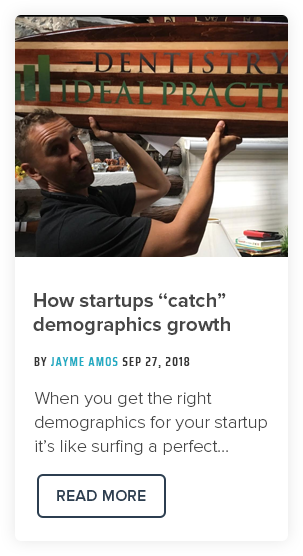
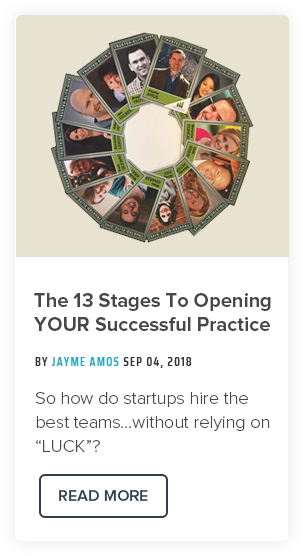
During the course, you will receive unlimited one-on-one access to the top experts in dental startups. They will help you create a customized blueprint for opening a dental office.
Over the 2-day course, the 24 attendees learn:
All packed into a life-changing course.
All the strategies are based on our consulting team’s experience with hundreds of startups in areas all across the country.
The course sells out months in advance due to the limited class sizes.
We’re so confident it will provide you with high-quality resources to build your best possible dental practice startup, we back it by our 150% money-back guarantee.
What are you waiting for? Check out our next available event dates to learn how to start a dental practice THE RIGHT WAY.
If you’d rather not wait to get started, apply today to be our next high-level consulting client. You won’t regret it!
Here’s to you and your future successful dental practice!
Privacy Policy: We hate SPAM and promise to keep your email address safe.
 Get a 1-on-1 Strategy Call
Get a 1-on-1 Strategy Call
 Speak with the #1 Startup Consultant in Dentistry
Speak with the #1 Startup Consultant in Dentistry
 Find Answers to Your Top Questions
Find Answers to Your Top Questions
 Avoid the Mistakes and Risks of Other Startups
Avoid the Mistakes and Risks of Other Startups
 Learn How Hundreds of Associates Used this Process
Learn How Hundreds of Associates Used this Process
 Get Customized Clarity for Your Startup Ideas
Get Customized Clarity for Your Startup Ideas
 Demographics, Real Estate and Marketing Topics
Demographics, Real Estate and Marketing Topics
 Discuss the Step-By-Step Startup Method
Discuss the Step-By-Step Startup Method
Ideal Practices is the leading consulting firm for startup dental practices. The consulting team guides dentists to open successful startups across the country. This website is a free resource founded by Ideal Practices.
As part of our passion for global entrepreneurialism, we fund 10 new startup businesses in 3rd world countries every time a client opens a new practice. By the year 2024 this effort will empower 4000 new entrepreneurs worldwide.
Get a 1-on-1 strategy call with the top Startup Strategy Advisor in dentistry.
Learn how startups work in dentistry.